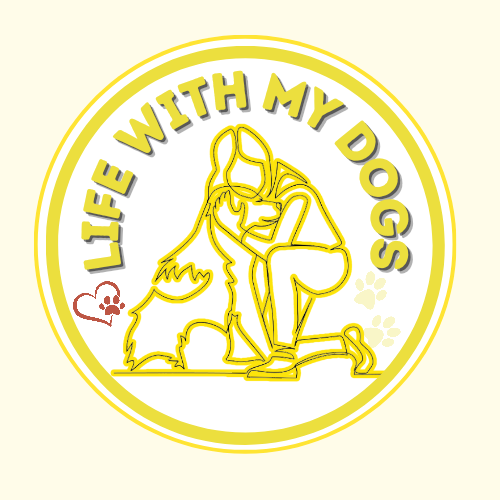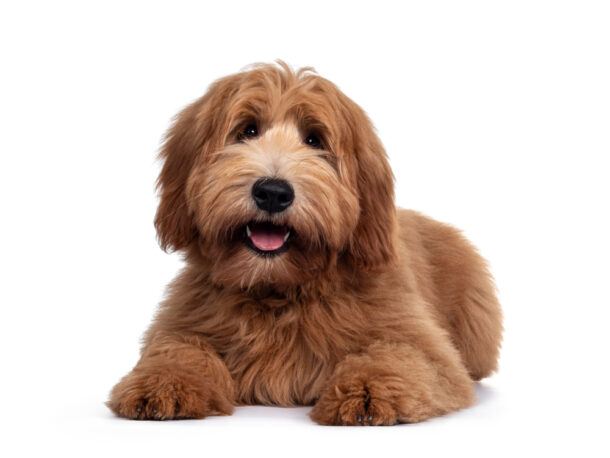LifeWithMyDogs is supported by our audience. When you purchase through one of our links, we may earn a small affiliate commission. As an Amazon Associate I earn from qualifying purchases. Your cost is not affected.
**********
Toy breed dogs are more than just our cute, furry friends. These little ones have captured my heart with their charming personalities and affectionate nature. I am constantly amazed by their fierce spirit and unwavering loyalty despite their size.
So whether you seek a snuggly buddy for your studio apartment or an energetic friend to match your active lifestyle, let’s explore the world of toy breed dogs together and discover the joy they could bring to our lives, one paw at a time.
11 Toy Breed Dogs That Make Great Pets: Perfect Pint-Sized Companions
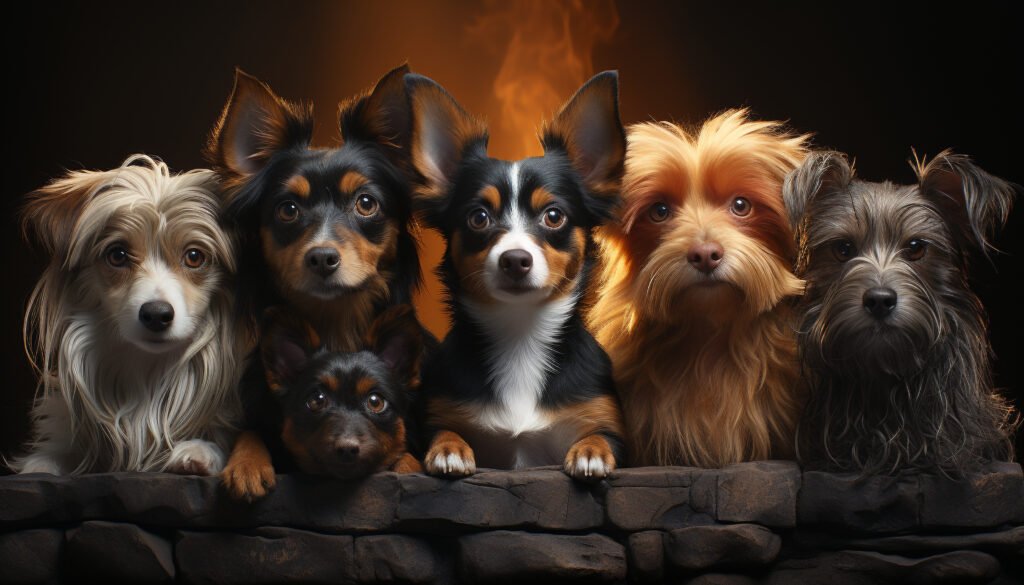
Toy breed dogs have a special place in the hearts of pet lovers everywhere. Compact and full of personality, these diminutive dogs fit comfortably into a variety of living situations, from apartments to spacious houses with yards. Their small stature belies a tremendous spirit, and many toy breeds are known for their affectionate nature and dedication to their owners.
With a range of temperaments and characteristics, there’s a toy breed to suit just about any personality or lifestyle. While some toy breeds like the Toy Poodle exhibit a remarkable combination of intelligence and agility, others such as the Cavalier King Charles Spaniel offer a gentle and loving presence that’s perfectly suited for life as a lapdog.
Toy dogs like the Chihuahua and Yorkshire Terrier are often fierce and bold despite their size, while the Shih Tzu and Maltese are known for their friendly demeanor and companionship. Additionally, with their distinct looks and unique traits—like the Papillon’s butterfly ears or the Pomeranian’s fluffy coat—these small-sized companions are as charming as they are varied.
Key Takeaways
- Toy breed dogs are versatile pets suitable for various living situations.
- Each toy breed has distinctive traits and qualities, from intelligence to loyalty.
- Proper care for toy breeds includes attention to their dietary, exercise, and socialization needs.
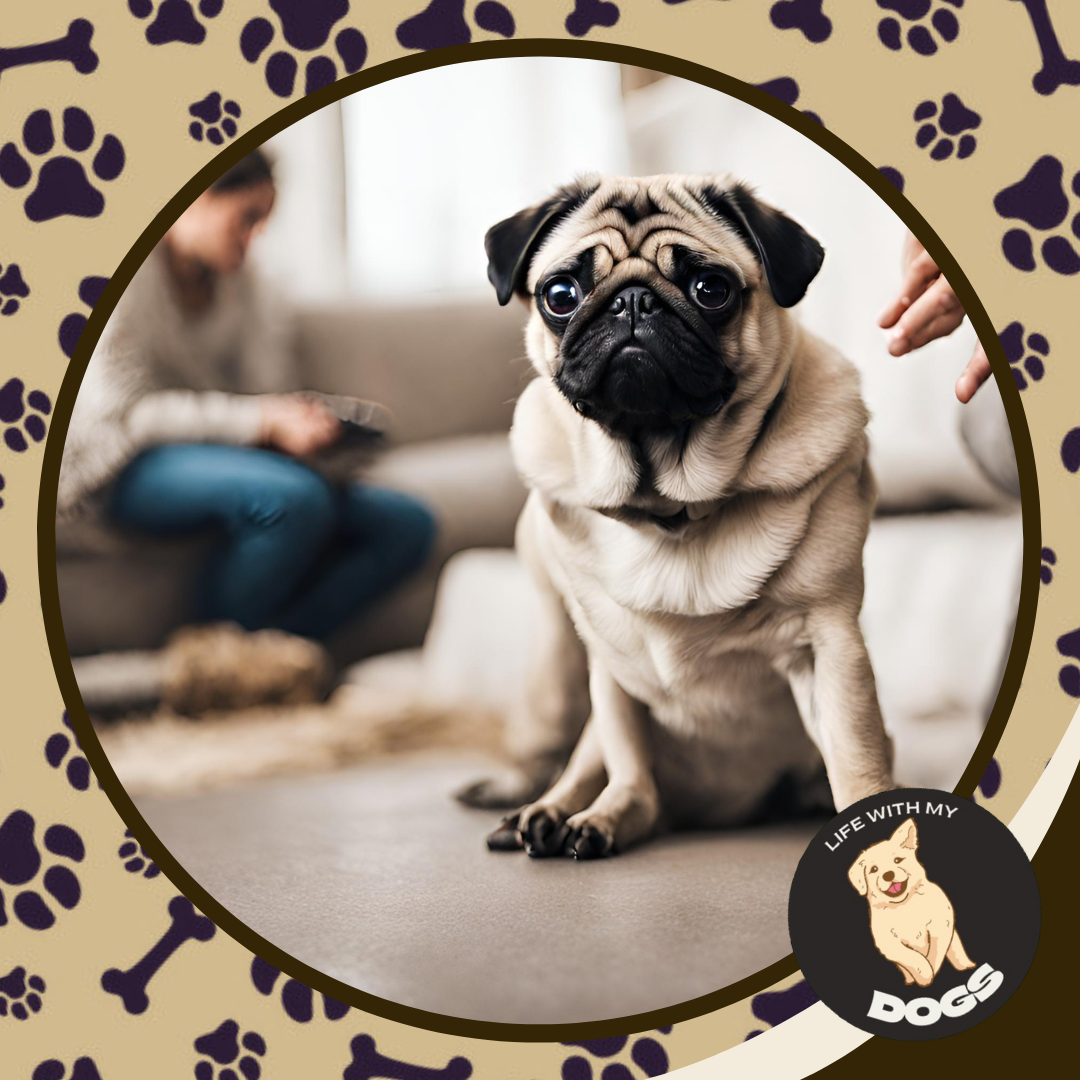
Defining Toy Breed Characteristics
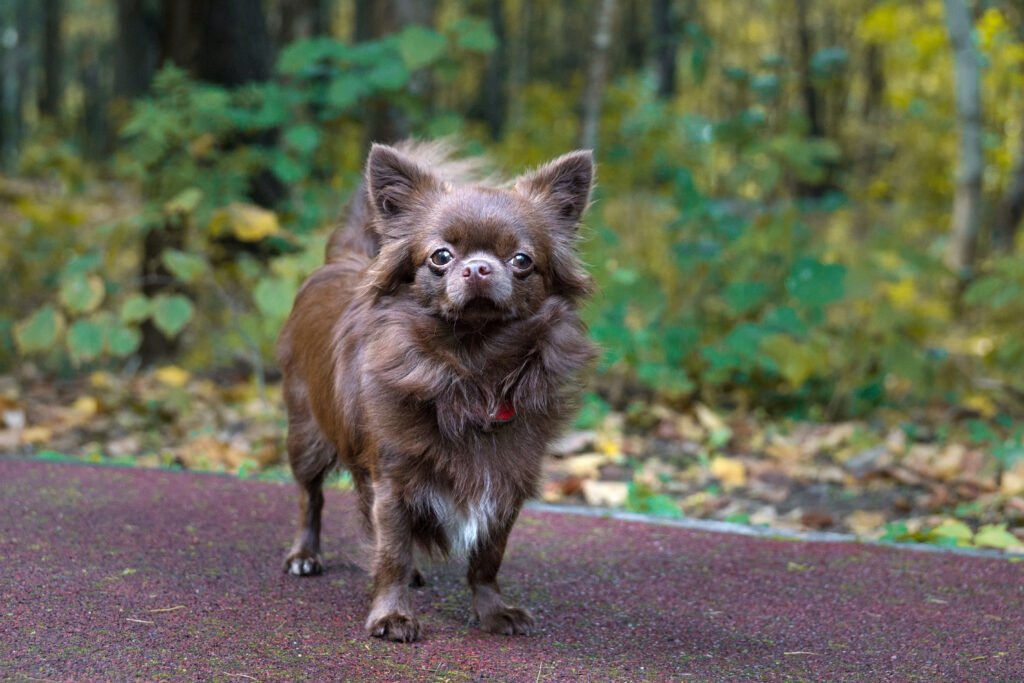
Toy breed dogs are sought after for not just their compact size, but also their boundless energy and affectionate nature. They typically weigh between 4 to 16 pounds, making them a convenient size for small living spaces and for pet owners who enjoy an easily transportable companion.
The characteristic traits of toy breeds go beyond their size. These pint-sized pets are known for their expressive eyes and charming personalities. They often have a long lifespan, some living well into their teen years. These breeds are usually very sociable with people, possessing a cheerful disposition that endears them to anyone they meet.
Here is a brief overview of toy breed characteristics:
- Size: Weight under 16 pounds; height varies by breed.
- Lifespan: Generally ranges from 10 to 18 years.
- Temperament: Affectionate, lively, and sociable.
- Activity Level: Varies from moderate to high; indoor play is often sufficient.

Video Credit: @AnimalWised
While they may be small in stature, they often have a strong sense of self and can be quite brave. Toy breeds excel in forming strong bonds with their owners, and many are great lap dogs that thrive on attention and companionship.
Due to their stature, they require gentle handling and protection from harsh weather. Moreover, they can be ideal candidates for dog sports like agility and obedience, which cater well to their intelligence levels and eagerness to please.
Grooming requirements for toy breeds vary, with some needing regular professional grooming while others maintain a low-maintenance coat. Owners should always be attentive to dental care, as toy breeds can be prone to dental issues.
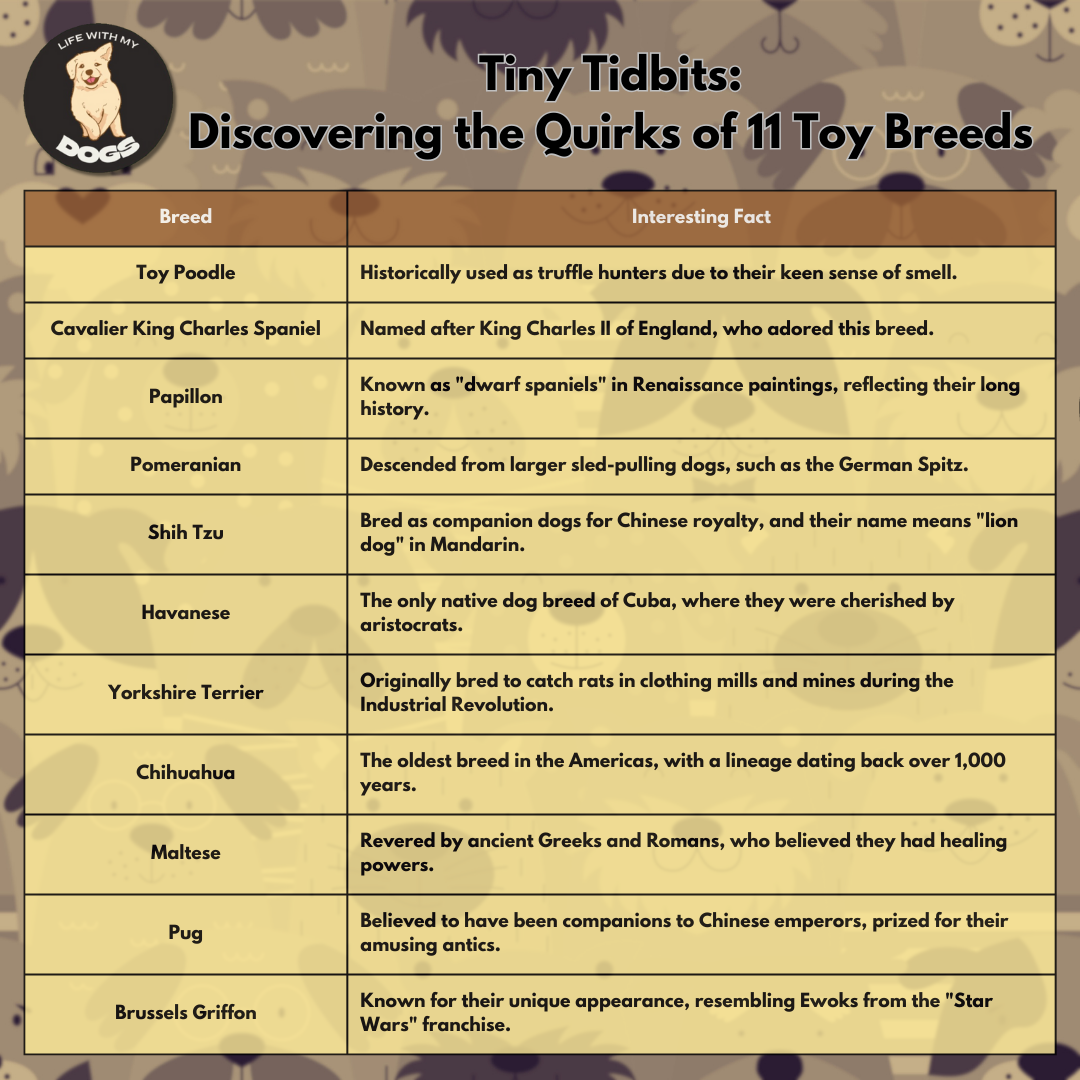
Toy Poodle: The Intelligent Performer
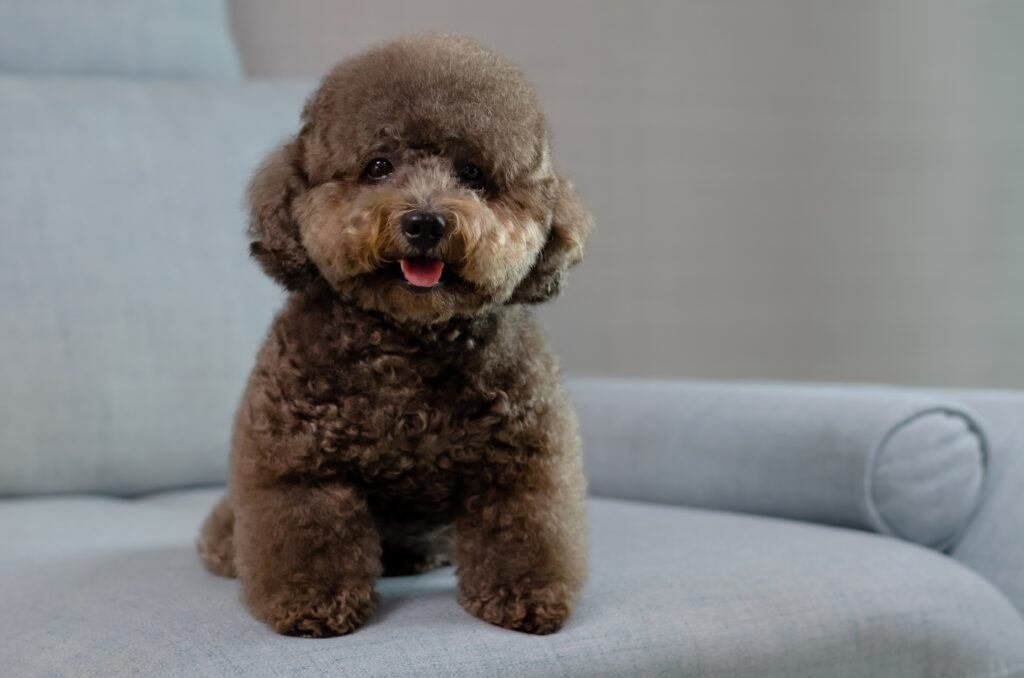
Toy Poodles are a delightfully intelligent breed, known for their remarkable ability to learn and perform. They excel in dog shows, often capturing the attention of judges and audiences with their elegant coat and confident presence. Below the surface of their show-worthy appearance, they are also agile and athletic, qualities that can be harnessed in various dog sports.
Characteristically, these small dogs possess a curly and dense coat, which comes in an array of colors like black, white, and apricot. Their grooming needs are significant, but their striking appearance once groomed is well worth the effort.
Key Characteristics:
- Height: Up to 10 inches.
- Weight: 4-6 pounds.
- Personality: Social, friendly, observant, apt to bark alertly.
Toy Poodles enjoy being part of a family. They’re your tiny shadows, often following owners from room to room. Their sensitivity to their environment and family dynamics means they thrive best in calm and consistent households.
Despite their size, Toy Poodles are protective of their home and they will not hesitate to bark to alert their family of anything unusual. They’re known to be highly social with humans and other dogs alike, and their friendly demeanor makes them excellent companions.
They may be small in size, but Toy Poodles are big in personality and heart, ensuring they make perfect pets for those looking for an intelligent and lively little companion.
Cavalier King Charles Spaniel: Royal and Lovable Lapdogs
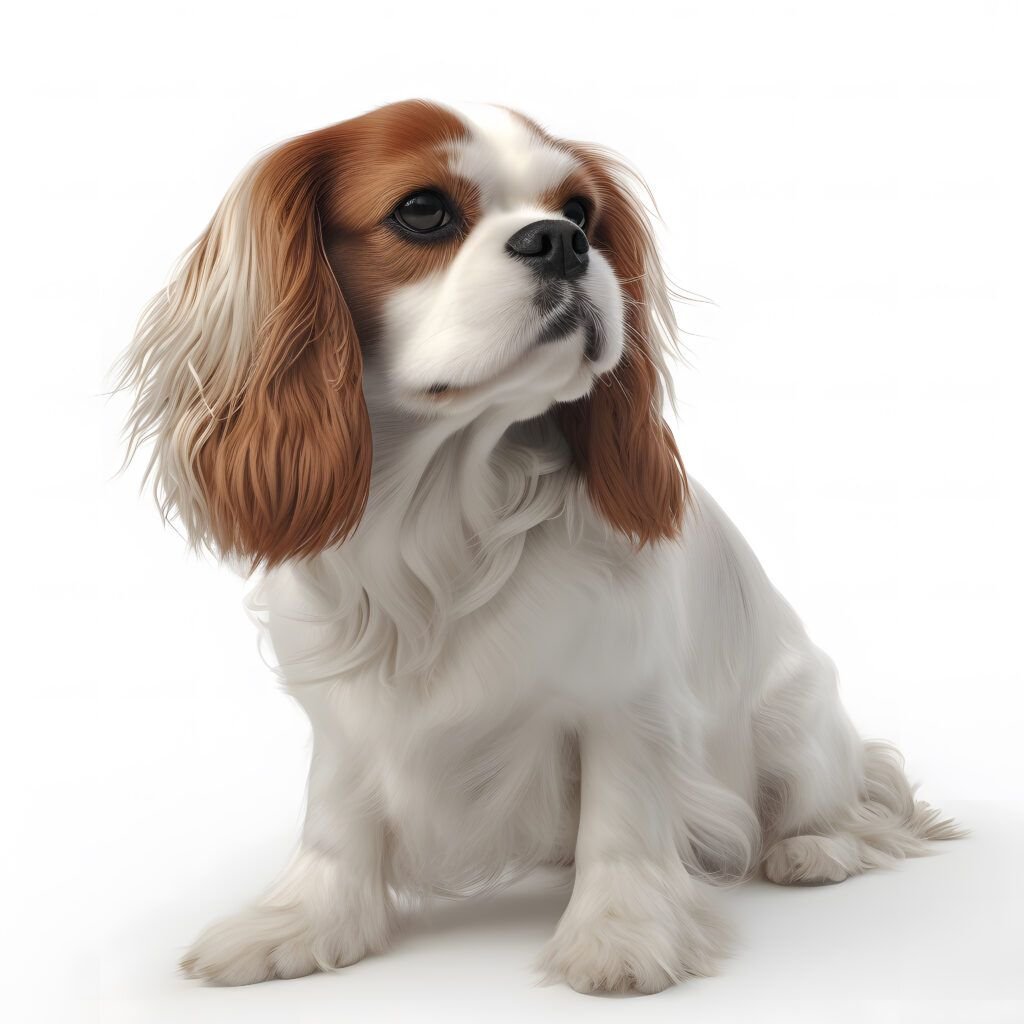
The Cavalier King Charles Spaniel, often referred to simply as the “Cavalier,” is a breed steeped in aristocratic history. These small canines exude a noble grace yet maintain a friendly demeanor, making them ideal pets for families, singles, and seniors alike.
Characteristics
- Size: Small
- Lifespan: 12-15 years
- Coat: Silky, medium-length
Cavaliers have a sociable and affectionate nature. They thrive on human companionship, oftentimes seen lounging on a warm lap or eagerly participating in family activities.
Despite their preference for comfort, they possess a playful side and enjoy moderate exercise, adapting well to their owner’s lifestyle whether it is active or more relaxed.
Grooming and Care
Cavaliers have beautiful, flowing coats that require regular grooming to prevent tangles and mats. Their long, feathered ears also need attention to avoid infections.
Although they are adaptable, Cavaliers benefit from daily walks and interactive play to keep them mentally stimulated and physically fit.
Health
They are generally healthy, but it is important to be aware of common issues like heart conditions and eye disorders. Choosing a reputable breeder and providing routine veterinary care can contribute to a Cavalier’s long, happy life.
The American Kennel Club praises the Cavalier’s gentle attentiveness as a hallmark of the breed. Meanwhile, descriptions of these charming canines as “comforter dogs” underscore their easygoing temperament, wrapping their loving nature in a small, regal package.
Papillon: The Butterfly-Eared Elegance
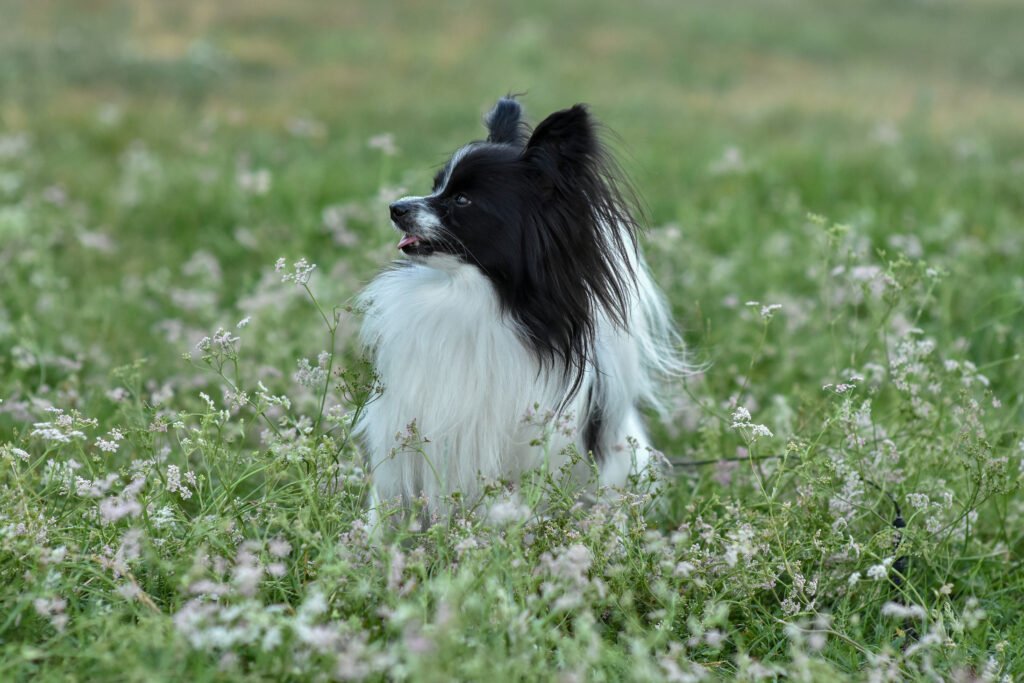
The Papillon is renowned for its distinctive butterfly-like ears, setting this breed apart with an air of refinement. These petite, alert companions are part of the toy dog group, showcasing not just beauty but also remarkable upbeat athleticism.
Despite their elegant appearance, Papillons are robust and spirited pets with plenty of energy and a strong desire for companionship. With origins in France, the name ‘Papillon’ aptly means ‘butterfly,’ related to their ear shape.
Here are key features of this breed:
- Size: Small
- Temperament: Friendly, energetic, and intelligent
- Coat: Long, fine, and silky
- Color: White with patches of any color
- Exercise: Enjoy daily walks and play sessions
Papillons are not only a treat to the eyes but also gifted with keen intelligence, making them easy to train and excellent at dog sports. They enjoy mental stimulation and excel in agility and obedience competitions, thanks to their quick reflexes and love for challenges.
These dogs fit well into family life, eager to share affection and snuggles. Due to their small stature, they are well-suited to apartment living but still need their daily dose of exercise.
Papillons are generally healthy, and with proper care, they can be delightful companions for many years. Their coat requires regular grooming to maintain its silky texture.
Pomeranian: The Fluffy Charmer
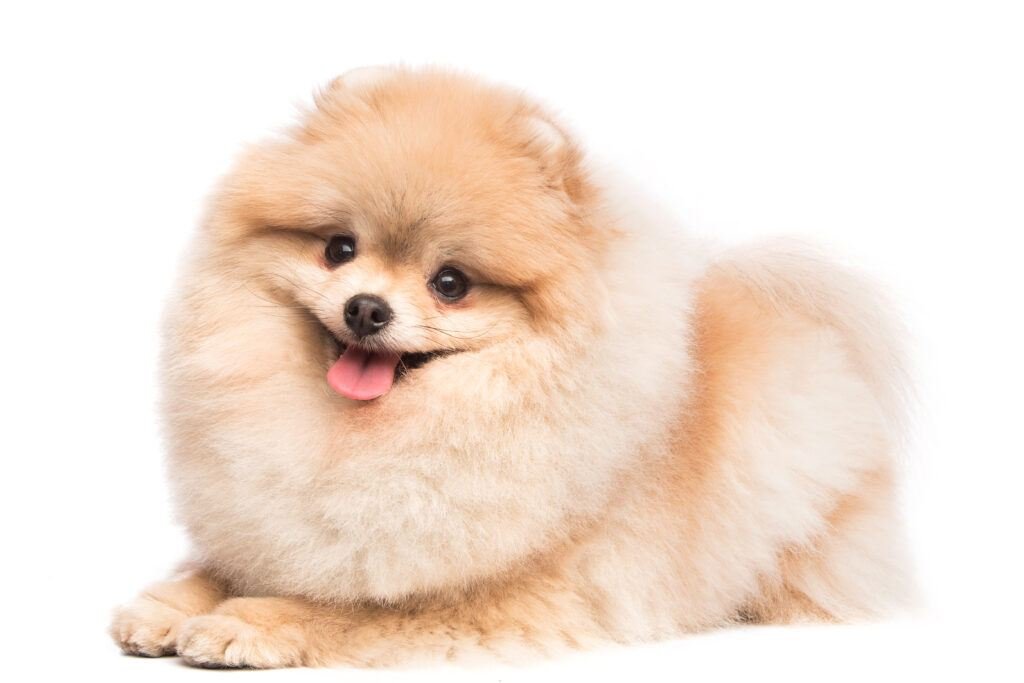
The Pomeranian is a delightful toy breed that exemplifies charm and vivacity. Often weighing between 3-7 pounds, they are the smallest members of the spitz family but do not let their size fool you. These tiny dogs have a bold and commanding presence, owing to their ancestral lineage that includes large sled-pulling dogs from the Arctic.
These dogs are highly intelligent and possess a spirited personality that endears them to their owners.
It’s not uncommon to see a Pomeranian confidently strutting around, its lavish fur coat bouncing with each step. Their coats require regular grooming to maintain their iconic poofs, which adds to their appeal. Moreover, Pomeranians have what one might call a smiling, foxy face, a feature that gives them an eternally happy and mischievous expression.
| Traits | Description |
|---|---|
| Size | Small |
| Personality | Spunky, bright |
| Grooming Needs | High |
Training a Pomeranian can be challenging due to their strong-willed nature, but with consistency and positive reinforcement, they learn quickly.
As a breed that can enjoy independence, Pomeranians don’t require constant attention, but they do love being part of their families’ daily activities.
Shih Tzu: The Loyal Friend
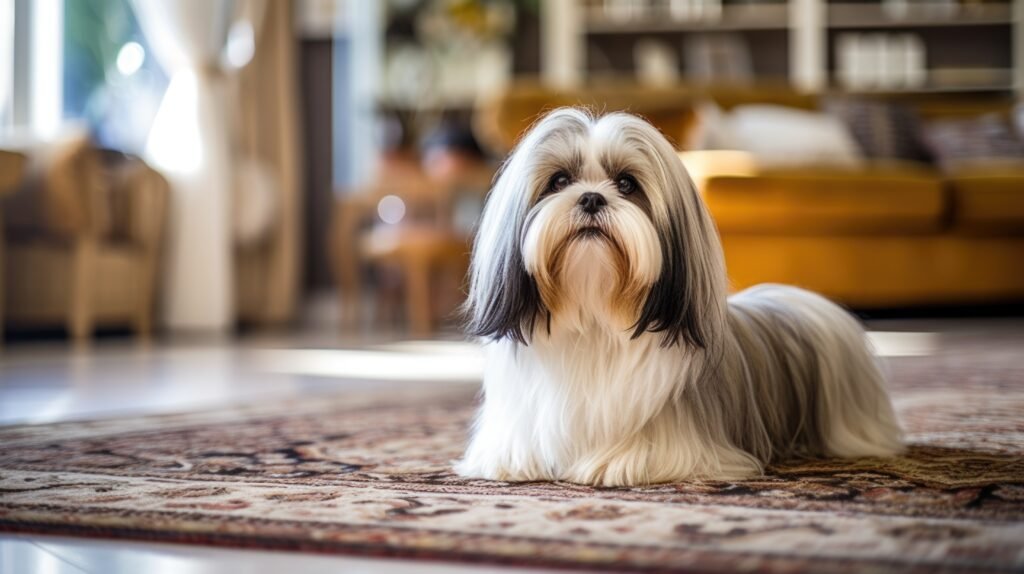
The Shih Tzu is often described as a small package with a big heart. This toy breed is well-known for its affectionate nature and deep loyalty to its owners.
A Shih Tzu’s presence is characterized by a friendly and happy demeanor that easily brings warmth to any home.
They sport a luxurious, long double coat that adds to their noble appearance, tracing back to their ancient roots in Chinese royalty. They may require regular grooming to maintain their beautiful mane, but many owners find this a delightful bonding activity.
- Size: Small, typically under 12 inches
- Weight: 9 to 16 pounds
- Coat: Long, luxurious double coat
- Personality: Confident, courageous, and playful
These dogs enjoy a playful session as much as a calm evening on the couch, making them versatile companions. Their size makes them easily portable, ideal for those who live in apartments or wish to travel with their furry friends.
Despite their tiny stature, they are surprisingly sturdy and mature rapidly, reaching adult size within the first year.
They thrive on human companionship and make wonderful house dogs when properly trained and cared for. Their sweet disposition and alert nature also often make them good dogs for families with children.
Havanese: The Silky Playmate
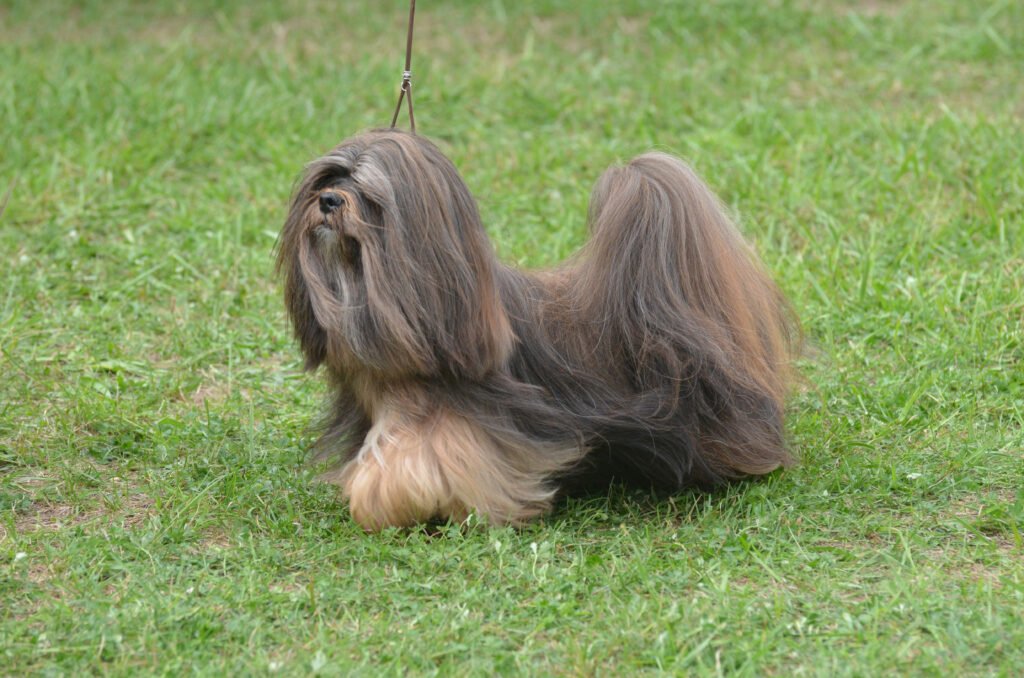
The Havanese breed, often revered as Cuba’s national dog, is a delightful companion known for its silky, flowing coat and friendly demeanor. These toy-sized pups are adorned with expressive, round faces and floppy ears that add to their irresistible charm.
Temperament:
- Playful
- Affectionate
- Intelligent
Havanese dogs excel in various canine activities. They have a genuine aptitude for performing tricks and participating in dog sports. They are also noted for their intelligence and good-natured temperaments, making them excellent family pets.
.
Physical Attributes:
- Size: Small
- Weight: 7-13 lbs (3-6 kg)
- Coat: Long, Silky
They adapt well to different living situations. Their sociable nature allows them to get along with people and other animals alike.
Despite their small stature, they do not exhibit the typical “Small Dog Syndrome” that can lead to behavioral issues. Instead, Havanese dogs are known for their even-tempered and agreeable personalities.
Health Considerations:
- Allergies: Prone to certain skin conditions
- Joints: Possible issues with knees
This breed is also a favored choice for individuals and families looking for a canine companion that requires less space while still offering an abundance of joy and companionship. Their cute appearance, combined with their amiable qualities, solidify the Havanese as the quintessential silky playmate.
Chihuahua: The Tiny Companion
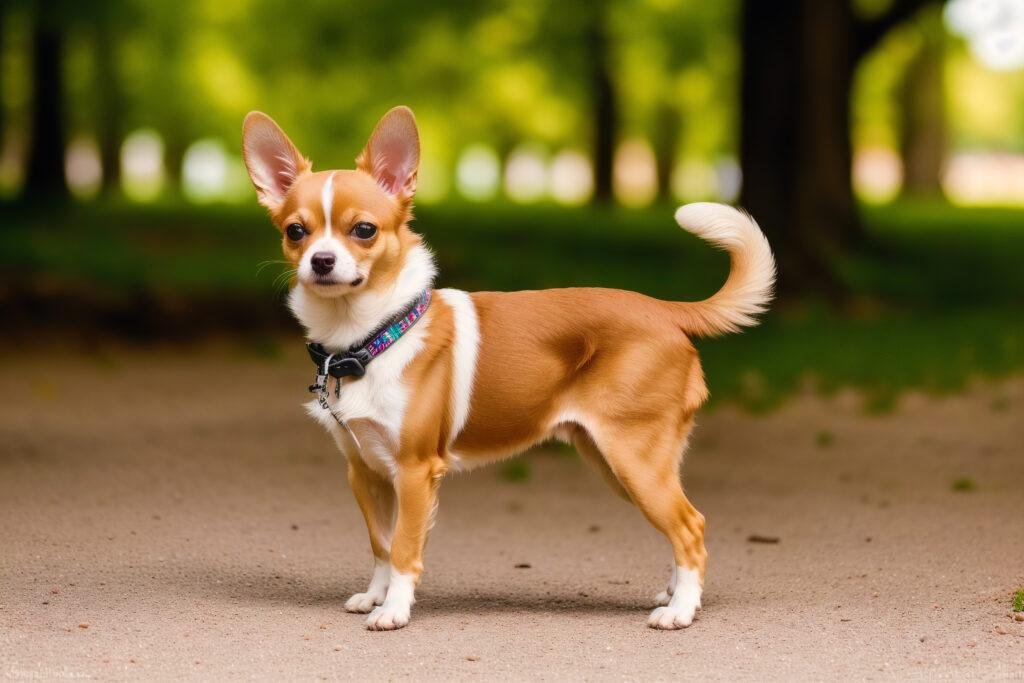
The Chihuahua stands out as a small dog with a big personality. Barely tipping the scales, these petite pets are known for their affectionate nature and fondness for attention. They enjoy nothing more than being by their owner’s side, making them a quintessential example of a loyal companion.
| Traits | Description |
|---|---|
| Size | Typically weighs no more than 6 pounds |
| Lifespan | Often lives 14-16 years |
| Personality | Alert, lively, and confident |
Despite their small stature, Chihuahuas carry themselves with confidence and possess a terrier-like demeanor. They’re balanced and graceful, with a distinctive “apple” head shape and alert, erect ears.
Chihuahuas come in a range of colors and coat lengths, but all share the common trait of being adaptable to various living situations. Whether in an apartment or a house with a yard, they make delightful pets for many kinds of families, as long as they’re treated with care and respect.
When considering a dog to pair with a Chihuahua, their size and temperament should be taken into account. They can get along with various breeds, but other small breed dogs like the Italian Greyhound have been noted to be particularly compatible due to similar size and energy levels.
These dogs may be tiny, but their hearts are undoubtedly huge when it comes to their humans. For families or individuals seeking a small dog with a loving and devoted disposition, the Chihuahua is an excellent choice.
Yorkshire Terrier: The Bold Adventurer
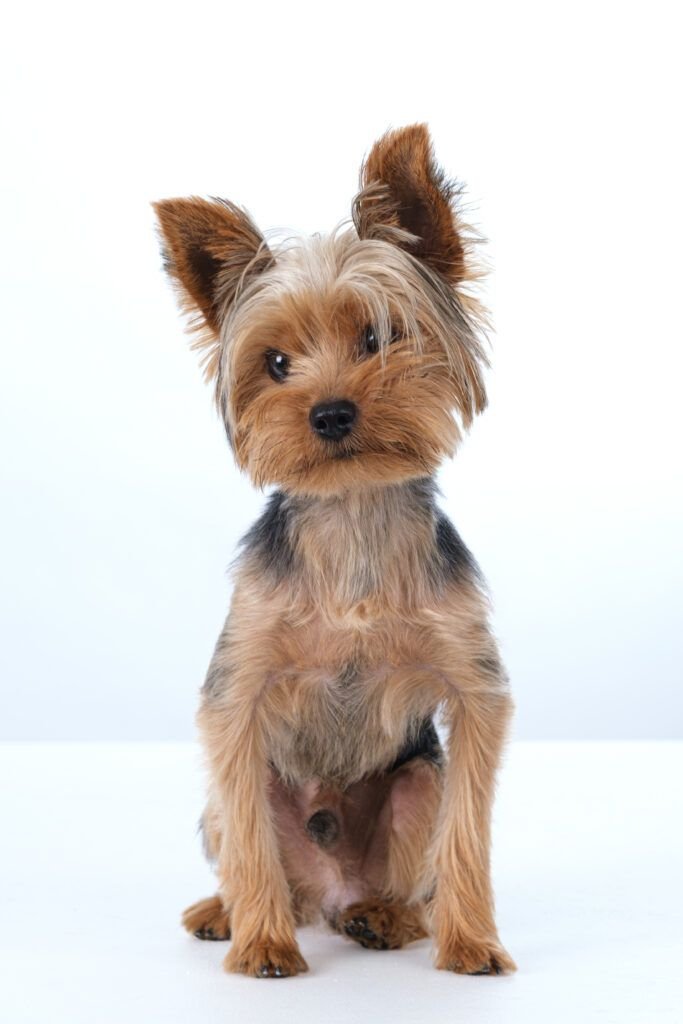
The Yorkshire Terrier, commonly known as Yorkie, is a small yet confident companion that encapsulates the spirit of adventure in a tiny package. Despite their miniature size, Yorkies are often unaware of their small stature, carrying themselves with an air of importance and boldness.
Size and Appearance:
- Height: 7 to 8 inches at the shoulder
- Weight: 4 to 7 pounds
- Coat: Long, silky, and fine
- Color: Black and tan, often with a lustrous shine
Originating from England, these tiny adventurers have now become one of the most beloved toy breeds around the globe. With a history of working in mills and mines to chase vermin, they have retained their tenacity and courage.
Personality:
- Yorkies have tenacious but affectionate demeanors.
- Their loyal nature makes them devoted friends to their owners, and they carry a cheerful disposition that brightens any room.
Known for being vocal, they often utilize their sharp bark to announce visitors or express their needs.
Living with Yorkies:
- Yorkies adapt well to apartment living, making them ideal for city dwellers.
- They enjoy walks and playtime but don’t require extensive exercise, which caters to a variety of lifestyle needs.
Their intelligence allows them to learn new tricks and commands with ease, delighting those who wish to engage in training activities.
For more information about Yorkies and their care, you can read their breed profile on The Spruce Pets.
Maltese: The Gentle Lapdog
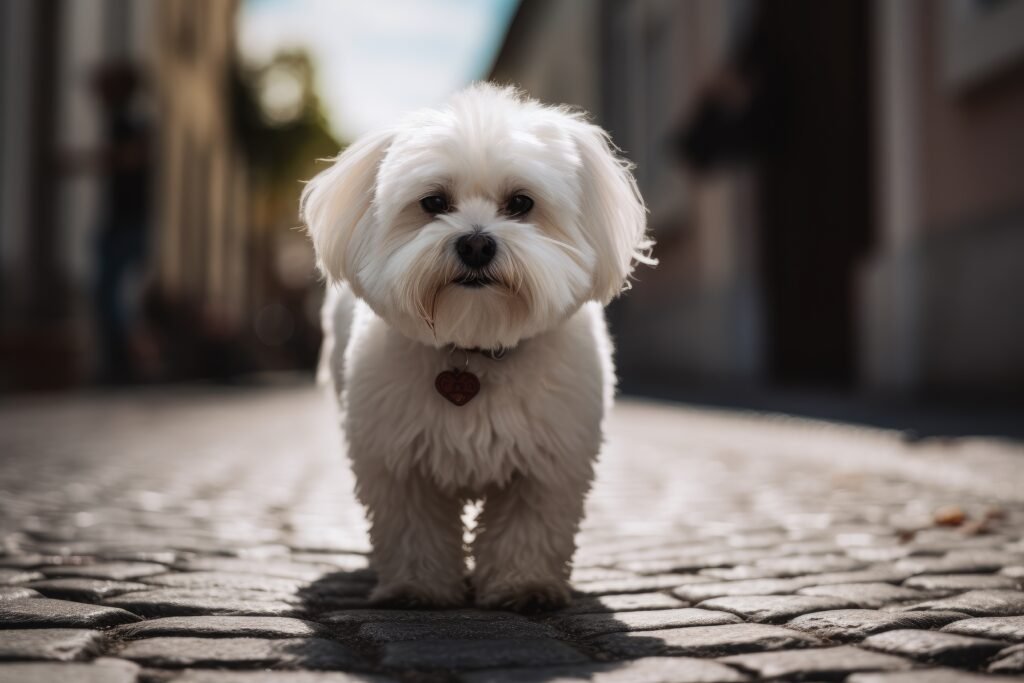
The Maltese is a small toy dog breed that embodies the essence of a companion animal. With origins in the Mediterranean, this breed is characterized by its luxurious silky white coat and expressive dark eyes that bring a look of eternal puppyhood. They stand out for their affectionate nature, often seeking the comfort of their owner’s lap and enjoying the coziness of home life.
Physical Traits:
- Weight: Under 7 pounds
- Coat: Long, straight, silky
- Exercise Needs: Moderate; daily walks and play
The breed possesses a compact body that moves with confident grace. Despite a penchant for relaxation, the Maltese also has a lively side, appreciating daily walks and play to maintain their mental and physical health. Regular grooming is essential to keep their coat in prime condition, but many owners opt for a shorter, more manageable haircut.
Behaviorally, Maltese dogs are known for their sweet disposition and fun-loving spirit, making them excellent choices for families and singles alike. They may be small in stature but they carry a big heart, filled with endless love and loyalty for their human companions. Their alert nature can make them an effective watchdog, as they are always keen to let their owners know when someone approaches their territory.
The Maltese’s adaptability to various living situations and their delightful temperament make them a top contender for anyone seeking a gentle and devoted lapdog.
Pug: The Mischievous Clown
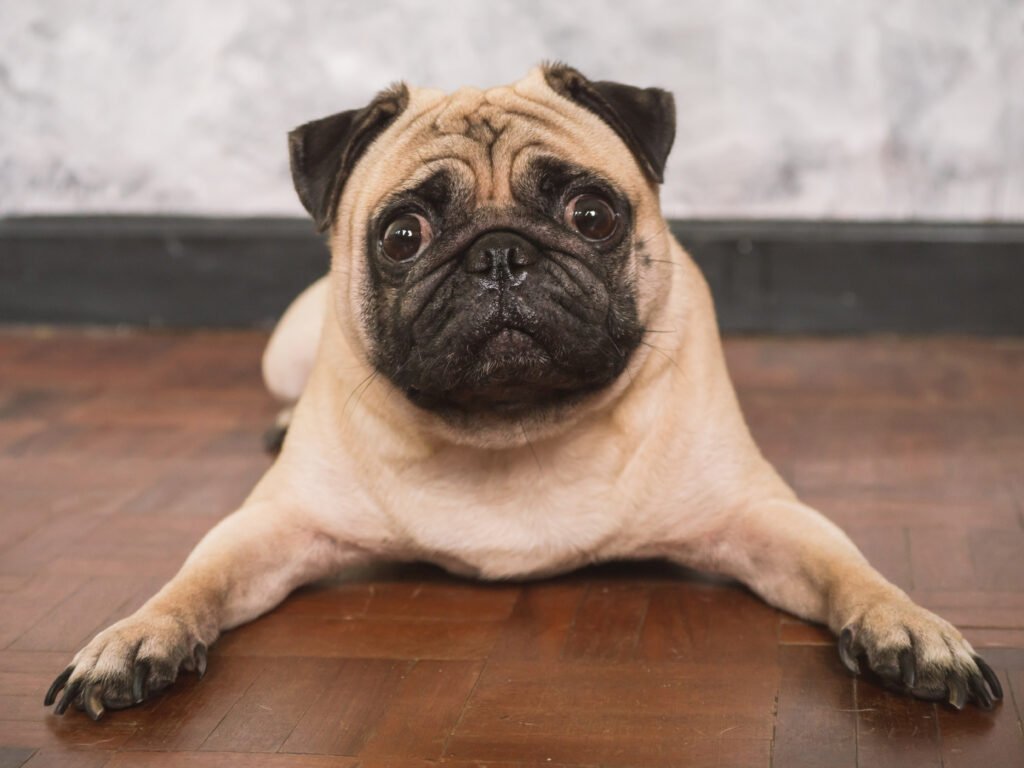
The Pug is a toy breed dog with a distinctive, wrinkled face and a big personality wrapped in a small package. Known for their mischievous antics, they often display a clown-like behavior that brings joy and laughter to their families.
Characteristics of the Pug:
- Weight: Typically ranges between 14 to 18 pounds.
- Height: Usually stands at about 10 to 11 inches tall.
Pugs possess a charming blend of dignity and comedy, a balance that endears them to people worldwide. Their appearance includes a short, stocky frame and a tail that often curls tightly over the hip. The face is highlighted by deep wrinkles and large, expressive eyes that seem to always be brimming with mischief.
In terms of personality, Pugs are known for their even-tempered and loving disposition. They thrive on attention and can be quite affectionate with their human companions. Despite their laid-back nature, they have a playful side that emerges frequently, full of zest and curiosity.
It’s important for prospective Pug parents to know that these dogs often don’t realize their small size and will happily attempt feats larger than their stature. They are remarkably social creatures, which makes them excellent family pets, especially in homes where they can be the center of attention.
Moreover, the Pug’s reputation as a companion dog is well-deserved; they have been bred for this purpose, bringing great pleasure to their owners. Pugs are well-suited to various living situations, from apartments to larger homes, as long as they can remain close to their beloved humans.
Brussels Griffon: The Watchful Companion
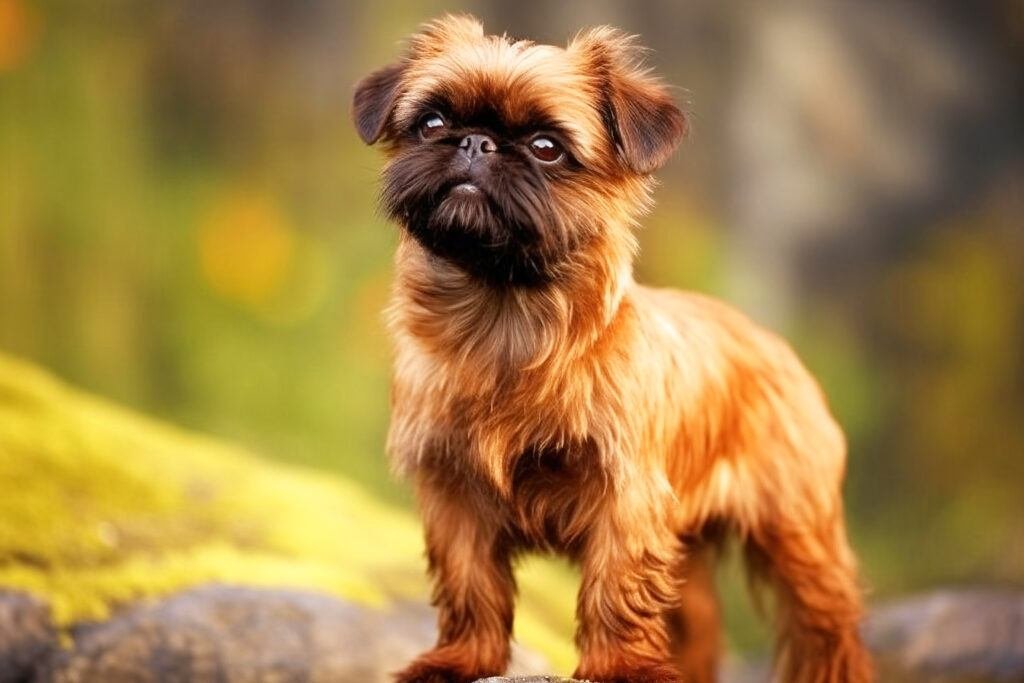
Brussels Griffons, often referred to as Griffs, are a toy breed known for their vigilant nature and expressive, almost human-like eyes. Originating from Belgium, these small dogs have a history dating back to the 1800s and served as skilled ratters in their early days. Today, they are valued as affectionate companions who bond deeply with their families.
Notably, the Brussels Griffon’s watchfulness makes them excellent little alert watchdogs. Their keen senses and natural caution with strangers make them effective at notifying their owners of unfamiliar presences. Despite their small size, they don’t shy away from standing their ground if they feel their space is being invaded.
| Coat Types | Grooming Needs |
|---|---|
| Smooth | Minimal |
| Rough | Moderate to High (requires weekly brushing) |
These dogs come in two coat varieties: the smooth, which is easy to care for, and the rough, characterized by a distinctive beard and shaggy fur, necessitating a more rigorous grooming routine. Regardless of the coat type, Griffs have a silky coat that adds to their charm.
Personality-wise, they are playful and mischievous, enjoying a good romp or game. Early socialization is crucial for them to develop confidence and a stable temperament. They typically get along well with other family pets, though they may sometimes be territorial.
Feeding and Nutrition for Toy Breeds
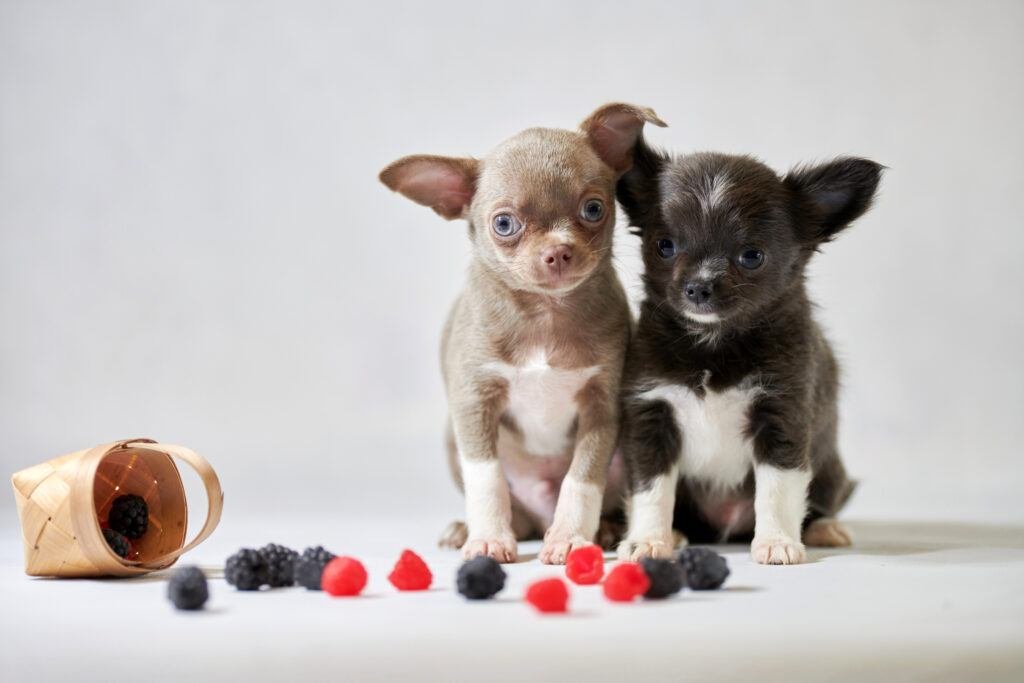
When it comes to feeding toy breed dogs, their nutritional needs are as unique as their diminutive statures. These small canine companions require a diet that’s rich in energy-dense nutrients to support their rapid metabolism.
It’s important for owners to be mindful of the quality of food they offer.
- High-Quality Protein: Toy breeds benefit from diets high in quality proteins like meat, fish, or poultry. Protein is essential for maintaining healthy muscles and supporting growth in puppies.
- Small Kibble Size: They need small-sized kibble that is easier to chew and digest. Large pieces can be a choking hazard or cause digestive issues.
- Specific Life Stage Formulation: Puppies, in particular, have distinct nutritional requirements, needing more calories and nutrients to facilitate their growth than adult dogs.
Here is a basic guideline for feeding toy breeds:
| Life Stage | Food Type | Key Nutrients |
|---|---|---|
| Puppy | High-calorie, nutrient-dense | Proteins, Fats, DHA |
| Adult | Balanced maintenance diet | Proteins, Carbs, Vitamins |
| Senior | Easily digestible, low-calorie | Fiber, Proteins, Less Fat |
Owners should always provide fresh water and monitor their pet’s weight to prevent obesity, which can be particularly harmful to small breeds due to their size.
Consulting with a veterinarian can help determine the best diet plan for a toy breed dog, ensuring they receive all the necessary nutrients for a healthy and joyful life.
Toy Breed Exercise Needs
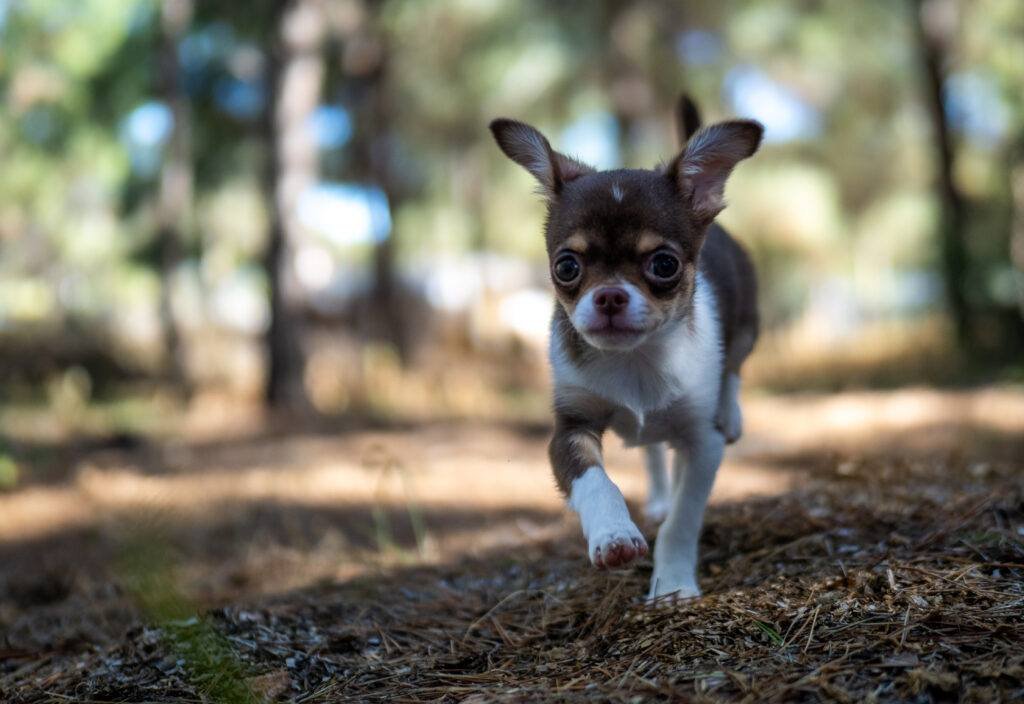
Toy breed dogs are known for their small stature, but they still require regular exercise to maintain good health and happiness. While their exercise needs are not as high as larger breeds, providing them with enough physical activity is vital for their wellbeing.
- Walks: Daily walks are essential, even if they are short, as they provide mental stimulation and physical activity. A good starting point would be two 15-minute walks per day.
- Playtime: Interactive play sessions can help meet their exercise needs. Games like fetch or tug-of-war are excellent for keeping them active.
- Training: Training sessions not only exercise their minds but also help in reinforcing obedience and strengthening the bond between the dog and its owner.
To understand the range of exercise different toy breeds might need, one can reference a basic guide & time chart for various dog groups, including toy breeds.
Since toy breeds have less room to store energy, their activity can be spread throughout the day with multiple short bursts of exercise.
It’s important to remember that although they are small, these dogs still need routine physical activity as part of their daily life. This ensures they remain fit and avoid the pitfalls of a sedentary lifestyle which can include obesity and related health issues. Owners should always observe their pet’s response to exercise and adjust the intensity and duration accordingly.
Indoor activities for toy breeds are also beneficial, particularly during inclement weather. Activities such as hide-and-seek with toys or agility exercises suitable for small spaces can provide them with much-needed activity.
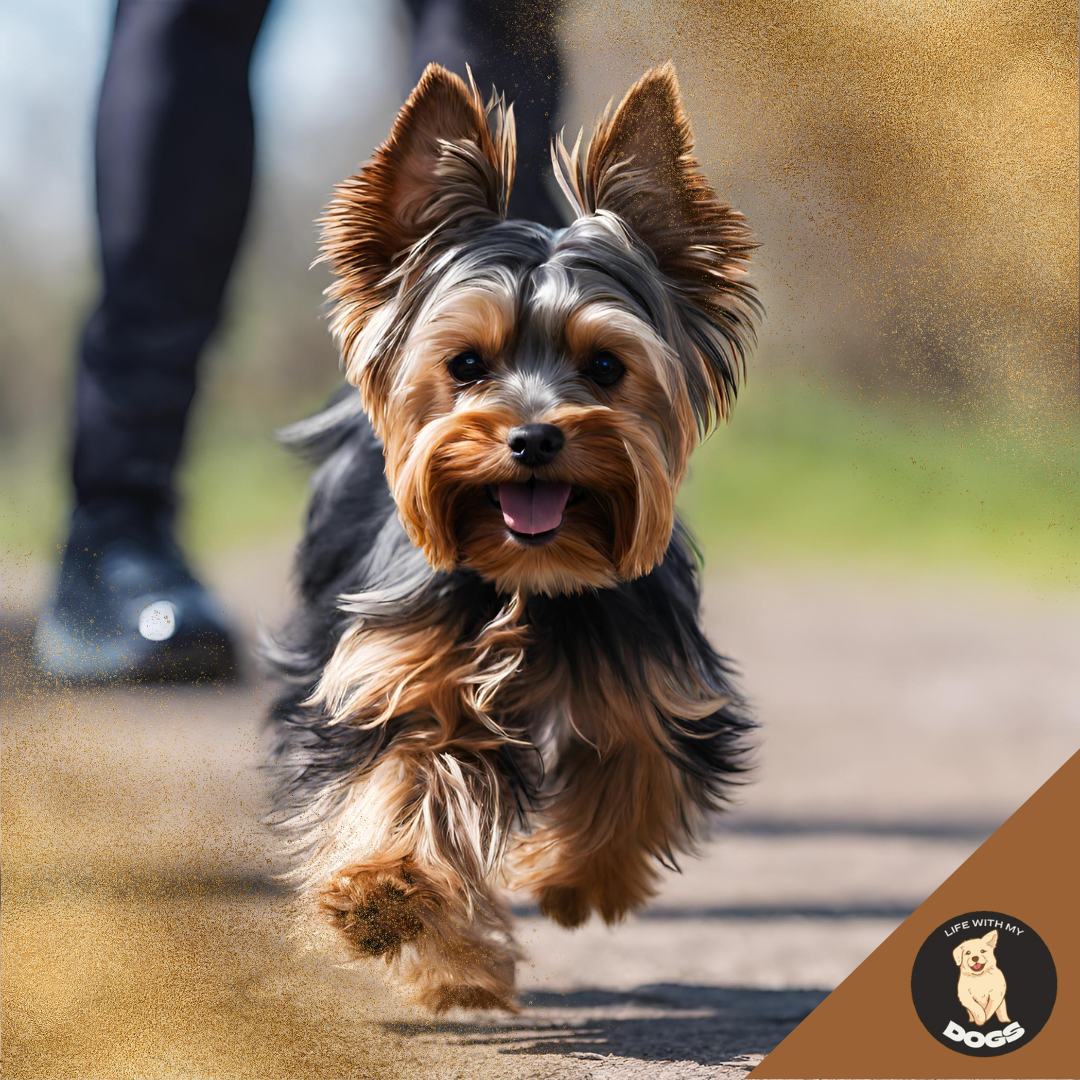
Training and Socialization
Toy breed dogs, with their compact size and endearing personalities, make fantastic companions. They often have a reputation for being harder to train due to their strong-willed nature, but with the right approach, they can learn just as well as any other dogs.
Training should start early. Positive reinforcement methods work best for toy breeds, as they respond well to treats and praise. Consistent and short training sessions keep them engaged and prevent frustration. For instance, a Yorkshire Terrier may be feisty, but is capable of learning a variety of commands and tricks when trained in a positive and patient manner.
Socialization is equally critical. It helps toy dogs become well-adjusted adults. Exposure to different people, pets, and environments is crucial.
For a breed like the Japanese Chin, early socialization can help them become more confident and sociable.
Video Credit: @McCannDogs
Key Points for Successful Training:
- Start Early: Begin training as soon as they’re part of the family.
- Consistency is Key: Keep commands and rules consistent.
- Positive Reinforcement: Always use treats, praise, and playtime as rewards.
Socialization Strategies:
- Meet New Friends: Regularly arrange playdates with other dogs.
- Explore New Places: Take frequent walks in different environments.
- Friendly Faces: Introduce them to a diverse range of people.
Toy breeds, like the adaptable Havanese, need patient and loving guidance. Training and socialization should be seen as a joyful and rewarding experience for both pet and owner, setting the foundation for a harmonious relationship.
Health Considerations for Toy Breeds
When welcoming a toy breed into your home, they bring a bounty of joy but also require specific health considerations to ensure a full and vibrant life. These pint-sized pups often have unique healthcare needs due to their diminutive size and breed-specific characteristics.
Dental Health: Their small mouths can lead to overcrowded teeth, increasing the risk of dental issues. Regular cleanings and dental checks are vital.
Diet and Obesity: Maintaining an ideal weight is crucial, as obesity can lead to serious health complications like diabetes or joint issues. Feeding them high-quality food in appropriate portions is key.
- Hypoglycemia: Smaller dogs can sometimes struggle with low blood sugar, known as hypoglycemia. It’s important to feed toy breeds small, frequent meals to maintain their blood sugar levels.
- Bone and Joint Care: Toy breeds are prone to joint issues like patellar luxation. A diet rich in glucosamine and chondroitin can support joint health.
Video Credit: @HealthNormal
Respiratory Concerns: Brachycephalic breeds, like Pugs or Shih Tzus, have flat faces and can suffer from breathing difficulties. Owners should keep exercise light and be cautious in hot weather.
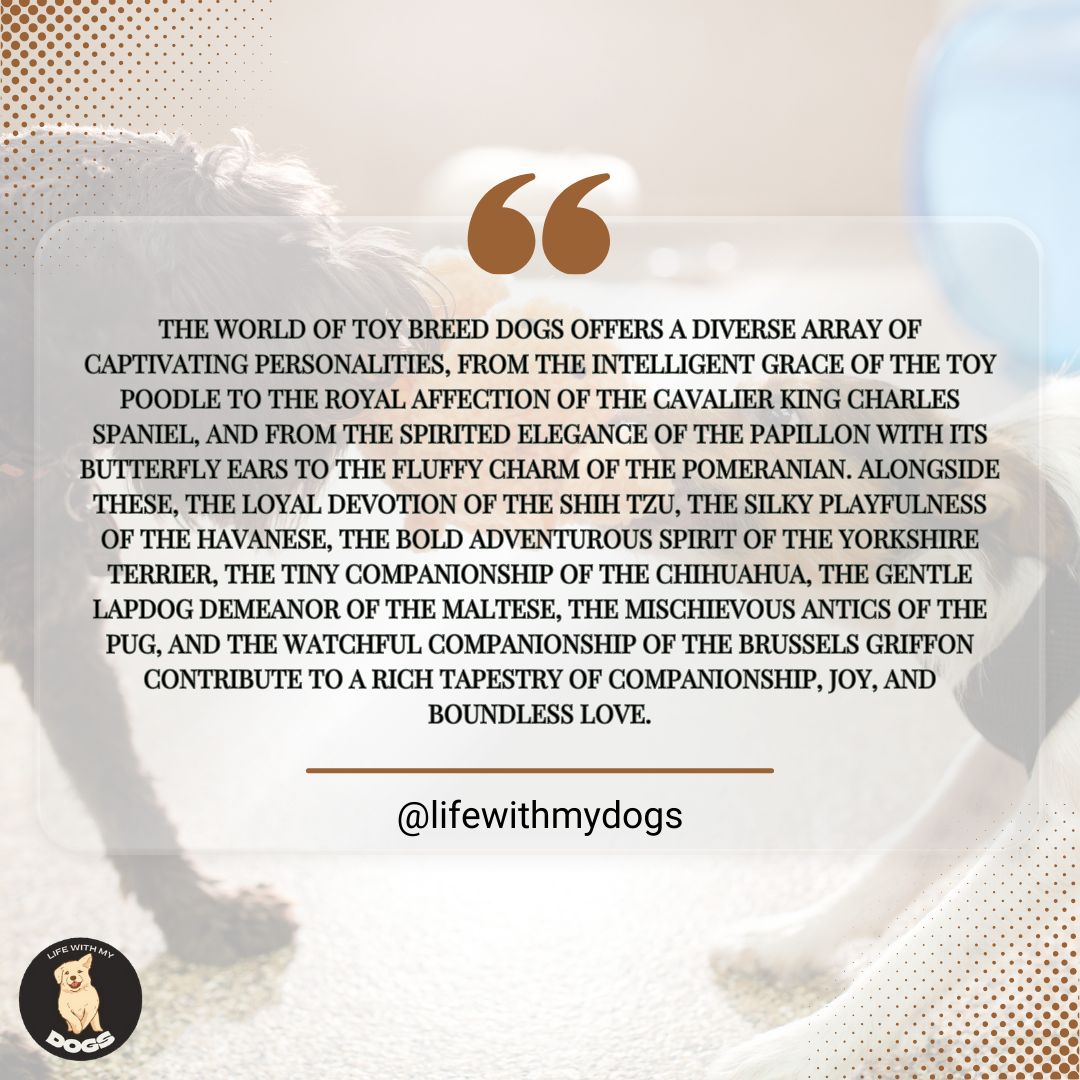
Embracing Toy Breed Dogs
Toy breed dogs are loyal companions overflowing with distinct charm and personality. From the spirited Toy Poodle to the gentle Cavalier King Charles Spaniel, each breed brings its own unique qualities to enrich our lives. With the diverse personalities of the 11 Toy Breed Dogs in this article, I am sure that there’s a toy breed perfectly suited to your lifestyle and preferences. Remember though your invaluable role in ensuring that they get the correct nutrition and training for optimal health.
So why wait? Take the first step towards welcoming a toy breed companion into your home today. Whether you’re adopting from a shelter or seeking out a reputable breeder, the rewards of toy breed ownership await. Prepare to embrace the joys of toy breed companionship and forge a lasting bond with your new furry friend.
Frequently Asked Questions
These FAQs provide insights into toy dog breeds best suited for families, their intelligence, hypoallergenic options, friendliness, and what one should know concerning their costs and needs.
What are some toy dog breeds that are well-suited for family life?
Families often adore the Yorkshire Terrier for its active and affectionate demeanor. Similarly, the Japanese Chin stands as a noble choice, cherished for its friendly and gentle nature with all family members.
How do toy breed dogs typically fare in terms of intelligence and trainability?
Toy breed dogs, like the Poodle, are known for their high intelligence and eagerness to please, which makes them quite trainable. Despite their small size, many toy breeds enjoy learning new tricks and commands.
Can you recommend any hypoallergenic toy dog breeds for allergy sufferers?
Allergy sufferers may find breeds like the Maltese to be a great fit, as they are known for being low-shedding. They do require regular grooming to maintain their coat but are a wonderful option for those with allergies.
What are the top-rated toy breeds known for their friendly behavior?
Breeds such as the Cavalier King Charles Spaniel are renowned for their friendly behavior and social nature with both other dogs and humans. Their kind and affectionate character makes them highly rated among toy breeds for friendliness.
What should potential owners expect regarding the price and upkeep of a toy breed dog?
The price and upkeep of a toy breed dog can vary. Some breeds may have a higher initial cost due to popularity or breeding practices.
Owners should also budget for regular grooming. They should also budget for potential health care specific to smaller breeds.
Continue Reading
